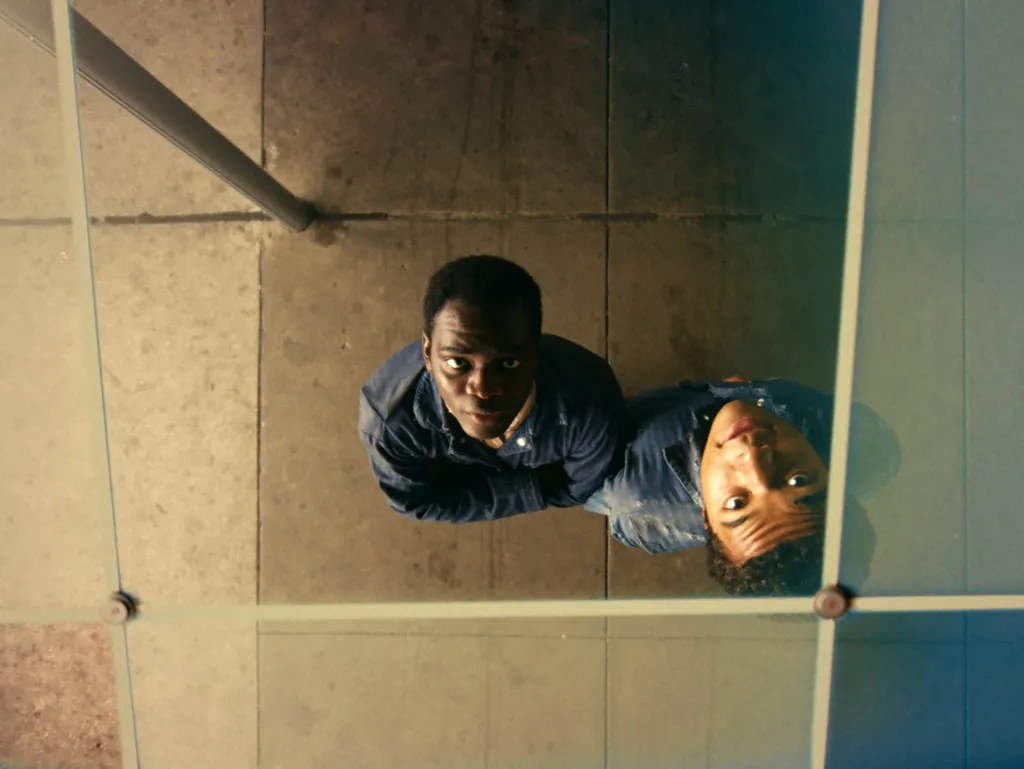Since attending an advanced screening of “Nickel Boys” in mid-November, I’ve seen numerous headlines and quotes touting its brilliance and naming it one of the best films of the year.
Much of the praise heaped on the movie stems from the bold choice to shoot it in the first-person, with its two main figures alternating as the point-of-view character at different points. That decision — credited in the film’s production notes to its director, RaMell Ross, and his co-writer, Joslyn Barnes, who’s also a producer on the film — certainly helps “Nickel Boys” stand out even among other works exploring this country’s history of racism.
Here’s the thing: I found the approach largely distracting — I just couldn’t unsee actors staring right into the camera as they delivered their lines, however deftly — and sometimes disorienting.
I genuinely hope I’m in the minority, as “Nickel Boys” — an adaptation of Colson Whitehead’s Pulitzer Prize-winning 2019 novel, “The Nickel Boys” — tells a powerful story inspired by the horrific goings on over the years at the Arthur G. Dozier School for Boys in Marianna, Florida.
The film begins as the story of Elwood, portrayed as a young boy by Ethan Cole Sharp but for most of the narrative by Ethan Herisse. Raised by his grandmother Hattie (Aunjanue Ellis-Taylor of “The Supremes at Earl’s All-You-Can-Eat”) in the Jim Crow South, the young Black man is on his way to begin his college education when his life is changed forever.
 Ethan Herisse stars as Elwood in “Nickel Boys.” (Courtesy of Orion Pictures)
Ethan Herisse stars as Elwood in “Nickel Boys.” (Courtesy of Orion Pictures)
Despite having done nothing wrong beyond hitching a ride in a car he had no way of knowing had been stolen by its driver, he is sentenced to time in the Nickel Academy, a reformatory the viewer will come to see as a brutal place.
At Nickel, Elwood befriends another inmate, Brandon Wilson’s Turner, who presents him with tips for surviving in this awful environment and who becomes the other POV character. Elwood is much more optimistic and idealistic than Turner and clings to the dream of a better life away from this prison, where the punishments sometimes rise beyond the level of mere cruelty.
Realizing that dream will not be easy, even as a determined Hattie is saving money to pay for a lawyer to advocate on his behalf.
 Aunjanue Ellis-Taylor portrays Hattie in “Nickel Boys.” (Courtesy of Orion Pictures)
Aunjanue Ellis-Taylor portrays Hattie in “Nickel Boys.” (Courtesy of Orion Pictures)
“Nickel Boys” offers yet another version of Elwood, as an adult (Daveed Diggs) living far away from the prison, in New York City, and trying to live a life while carrying the memories and traumas from his time there. He still can’t truly escape Nickel Academy, however, after several unmarked graves are found at the site.
Early in this piece, I used the word “distracting” to describe the way “Nickel Boys” was shot, and the POV style somewhat got in the way of my appreciation of the acting in the film. That said, Herisse (“The American Society of Magical Negroes”) and Wilson (“The Way Back”) make it easy to get behind Elwood and Turner, respectively, and Diggs (“Hamilton,” “Blindspotting”) cannot help but be interesting on the screen — even when shot steadily from behind.

I also used the word “disorienting,” which describes the film’s climactic few minutes, in which the events mirror those of the book. Watch closely to follow them precisely.
It feels, well, wrong to wish a filmmaker would have used a less daring approach, but that is what I found myself doing as I experienced “Nickel Boys” and thought about the work here of Ross — whose other feature is the 2018 Academy Award-nominated documentary “Hale County This Morning, This Evening,” referred to in the “Nickel Boys” materials as an “impressionistic turn on the lives of Black people in the American South.”
Hopefully, your experience will be quite different from mine when you see “Nickel Boys.” And see it you should, as it is another painful reminder of the kinds of acts of which men are capable when they’re driven by hate and prejudice.
“This is just one place,” Turner says to Elwood, who then delivers the line that has stuck with me since mid-November.
“There’re Nickels all over the country.”
“Nickel Boys” is rated PG-13 for thematic material involving racism, some strong language including racial slurs, violent content and smoking.



